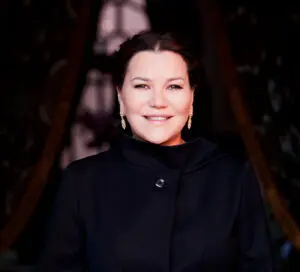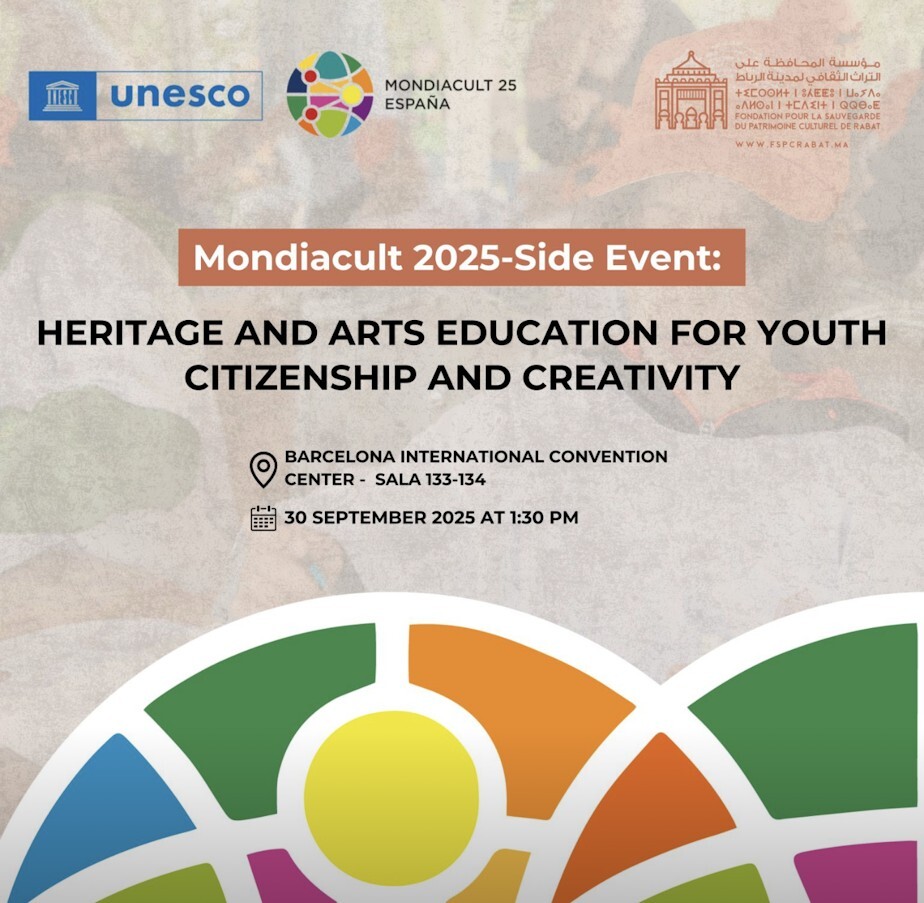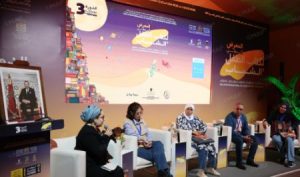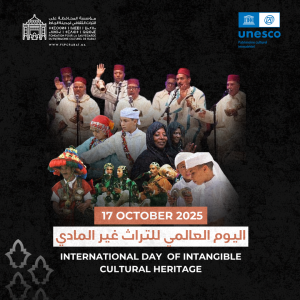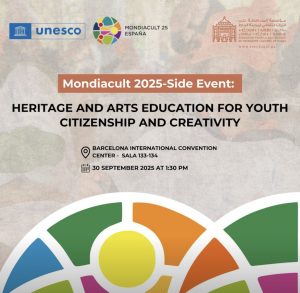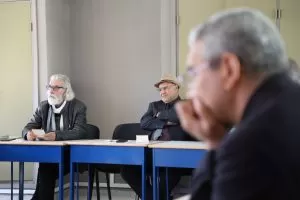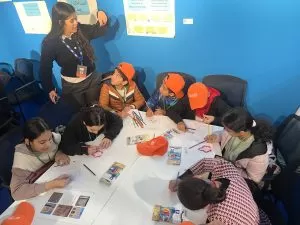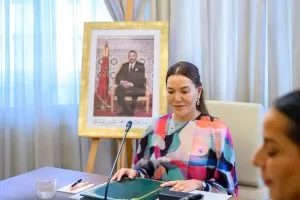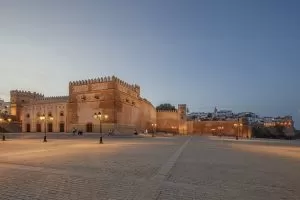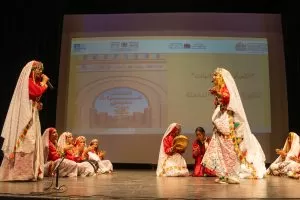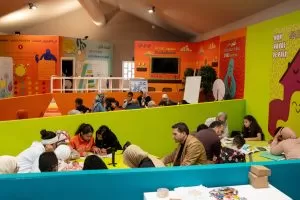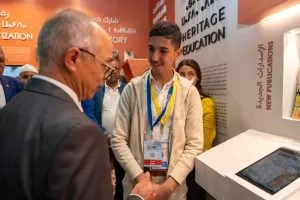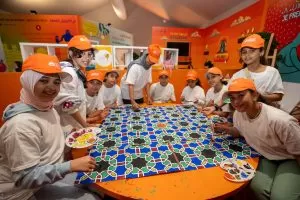the Cultural Heritage of Rabat, in partnership with Fondation Hiba, organized a side-event focused on the role of heritage and arts education as drivers of creativity and citizenship among young people. The event explored how heritage education has gone beyond the mere transmission of knowledge to become a catalyst for civic engagement and artistic innovation, relying on integrated and sustainable approaches in line with the priorities of MONDIACULT 2025.
The event brought together professionals from the fields of education, culture, arts, and global citizenship to highlight innovative methodologies that combine heritage, artistic creation, global education, and sustainable development. The presentations demonstrated how these integrated approaches renewed young people’s interest in heritage while promoting civic participation, creativity, and intercultural understanding.
Participants also explored the connection between heritage and contemporary arts — including comics, street art, and storytelling — as levers for civic expression and social inclusion. The discussions helped identify inspiring practices that could be replicated in other contexts and contributed to the international debate on heritage education as a strategic tool for social cohesion, innovation, and sustainable development.
Several key questions guided the discussions: How can heritage become an educational tool that transcends traditional disciplinary boundaries? Which methods are most effective in fostering active youth engagement? How can formal and non-formal education be articulated to ensure lasting impact? And which multi-stakeholder partnerships are essential to guarantee the success of such initiatives?
The speakers included Yousra Aannour, Executive Manager of the Foundation for the Safeguarding of the Cultural Heritage of Rabat, who presented heritage education as a driver of youth creativity; Marwane Fachane, Director General of Fondation Hiba, who highlighted the cultural economy and the role of heritage at the intersection of education and investment; Soumia Ibda, Cultural Manager at EAC L’Boulevard, who discussed the history of street art in Morocco in her presentation titled “Between Walls and Dreams”; and Yujin Jo, Programme Specialist at APCEIU (online), who emphasized the importance of learning to live together through heritage by linking world heritage and global citizenship education.
The session concluded with an interactive exchange with the audience, allowing for further reflection on educational innovation, heritage valorization, and the engagement of young people as agents of change.
